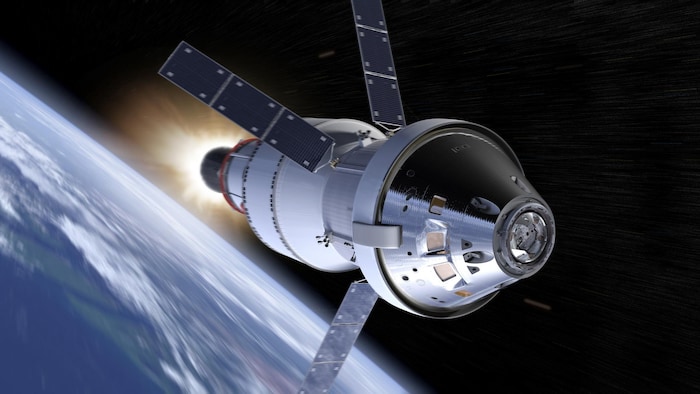Open in full screen mode The Orion spacecraft. Radio-Canada Speech synthesis, based on artificial intelligence, makes it possible to generate spoken text from written text. NASA has announced the postponement of the next two manned missions in its lunar program. The Artemis 2 mission, which was scheduled to take off from Earth in November 2024, is now planned for September 2025. This mission – in which Canadian astronaut Jeremy Hansen will participate – must circle the Moon without landing. For its part, Artemis 3, which is to bring astronauts back to the lunar surface for the first time since the end of Apollo in 1972, is postponed from late 2025 to September 2026.
Jeremy Hansen is part of the crew of the Artemis 2 mission.
The Artemis program aims to establish a lasting presence on the Moon, in order to prepare the journey of a first crew to Mars.
This program was inaugurated in December 2022 with the Artemis 1 mission, without an astronaut on board, which made it possible to test the heat shield of the Orion spacecraft.
Loading
Catch-up from the end of January for all Quebec students who need it
ELSE ON INFO: Catch-up from the end of January for all Quebec students who need it
Following this inaugural flight, a report from NASA's Office of Inspector General identified several problems that needed to be resolved before the program continued.
In addition, according to NASA, two essential components are in fact not yet ready:
SpaceX's moon lander will be a modified version of the spacecraft Starship, currently under development by Elon Musk's company.
However, Starship's first two flight tests #x27;were not successful. To reach the Moon, Starship will also need to be refueled in flight – a risky and untested operation.
In addition, to study the surface In order to prepare for these manned missions, NASA contracted with other companies to transport scientific equipment there – a program called CLPS.
The first of these missions, led by Astrobotic, is compromised after encountering a serious anomaly in flight, shortly after takeoff on Monday.

